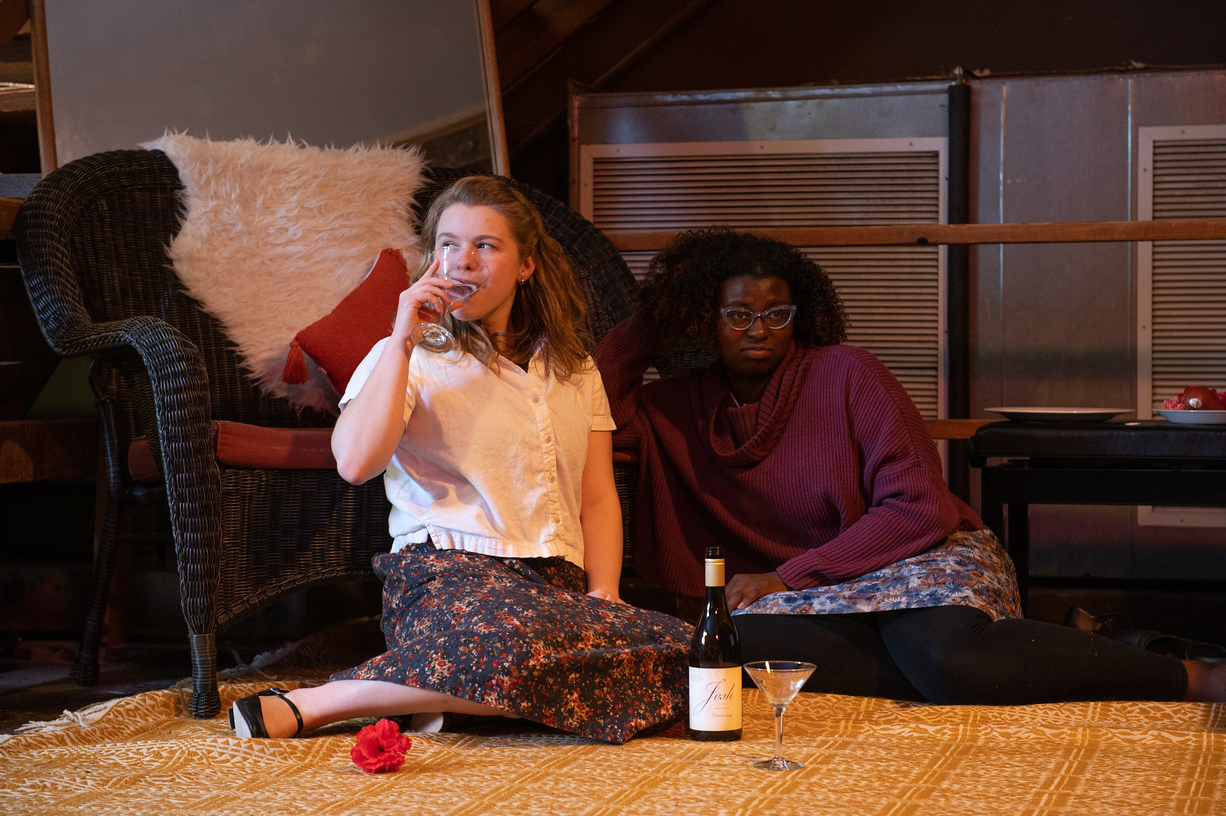Portrait of an Artist: Julia Jennings ’23
February 17, 2023
 Courtesy of Julia Jennings
Courtesy of Julia JenningsSince being cast in the role of a murderous old woman during her freshman year of high school, actor, writer and director Julia Jennings ’23 has only grown in her understanding and appreciation of theater. From studying at the National Theater Institute (NTI) in 2022 to, more recently, writing and developing a play titled “In the End, we all go to Providence,” Jennings has been involved in many different facets of theater production, ranging from writing to acting to stage management.
Jennings credits her time at the NTI for exposing her to the many creative and enticing aspects of contemporary theater. The school—located in Connecticut—made frequent trips into New York City to see Broadway and off-Broadway productions. Jennings praised the quality of the NTI’s faculty, many of whom work as theater professionals.
Jennings describes her acting and writing style as an attempt to capture life realistically and in its truest form. She has been inspired by unique methods to writing dialogue that allow for a natural flow of conversation on stage.
“[At the NTI], we read one of Sarah Einspanier’s plays, and suddenly they were using different font sizes when words were supposed to be said loudly, and they were writing in smiley face emoticons,” Jennings said. “It shows you can play with what the page looks like to make it more accurately reflect the way people actually talk. That’s part of my style of writing.”
Mira Pickus ’25, an actress and friend of Jennings, finds it interesting to watch Jennings’s writing style, especially her dialogue, play out on stage. She has even had the privilege of watching Jennings put pen to paper.
“[Jennings’s] style is very neat because it’s inventive. The dialogue is really fun to say as an actor because it’s natural, and it’s very specific because it’s from real contexts,” Pickus said. “I watched her work … and she’ll often be in the dining hall and hear something and go, ‘Oh, that’s good’ and then write it down.”
Pickus believes that Jennings’s approach to writing and her use of theater to display the depth of life and relationships brings light both on and off stage.
“Julia also does both [acting and writing], and she really lives for the moments in theater that can’t be created anywhere else, and that moment where she feels that her work is alive. I think that when you work with her and when you watch her work, you can see that she is looking for that, and she brings a lot of brightness into the workspace because of that,” Pickus said.
Jennings is not one to run away from risk, choosing to embrace the challenges of creating theater. The excitement of not knowing what will and won’t work has been at the center of her most memorable experiences.
“My favorite experience at Bowdoin I will say was the play that I wrote last year…. I was so scared and I didn’t know if this [production] was going to work. There was especially a moment at the end where [the actors] had thrown papers all over the stage. We wheeled out a fan, and we were going to turn it on, and the fan was going to blow off papers. We’ve never practiced this, and I didn’t know if it was going to work. And then it worked,” Jennings said. “That was really exciting.”
The brief moments in which theater comes to life, where audience members, cast and crew unite to fully dedicate themselves to what happens on stage, continues to motivate Jennings and remind her of the importance of leaving a lasting impression in a small amount of time.
“I had a teacher at the NTI, Rachel Jett.… She said that ‘theater reminds us of our own mortality.’ Theater is so fleeting. It’s not like a film where you can go back and watch it. You have to be in the room. You put all this work into it and then it’s over like that,” Jennings said. “I think because it’s ephemeral, that’s what makes it so sacred. That’s what makes it so compelling. It’s so alive. I think when we’re watching a play, we’re all breathing the same air as the actors, as each other, as the audience. That’s why I’m so drawn to it. Theater reflects life in a way that I really appreciate.”

Comments
Before submitting a comment, please review our comment policy. Some key points from the policy: